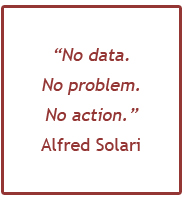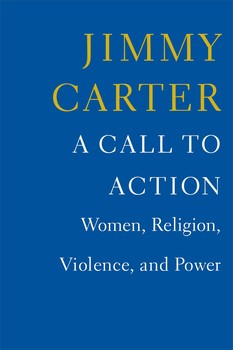 “Violence against women and girls is one of the most widespread violations of human rights. It can include physical, sexual, psychological and economic abuse, and it cuts across boundaries of age, race, culture, wealth and geography.”
“Violence against women and girls is one of the most widespread violations of human rights. It can include physical, sexual, psychological and economic abuse, and it cuts across boundaries of age, race, culture, wealth and geography.”
Say No—UNiTE to End Violence Against Women website
Take action!
Inasmuch as these words inspire community engagement and transformation, to witness real change requires a collaborative commitment to “walk the talk.”
There comes a time in our lives when we are confronted by someone who challenges our personal and political ideologies, forcing us to question how and what we “know” to be true and, in facing the fallacy of our dogma, we are forced to concede our ignorance. If one can embrace even the possibility of transformation, however faint, change will inevitably follow.
Recently I attended the UNIFEM panel discussion corresponding to the UNiTE to End Violence Against Women campaign, a global call for action on ending violence against women and girls. Launched in 2008, the campaign advances UNiTE’s objectives through social mobilization. What I heard has inspired me to think and act locally, and globally, in order to be part of the solution to ending violence against girls and women everywhere.
Moderated by Charles Coffey, O.C., the panel of guest speakers included The Honourable Senator Mobina Jaffer, Q.C.; Nanette Braun (Head of Communications, United Nations Headquarters, UNIFEM); Dr. Shafique N. Virani (Professor, University of Toronto); Madame Lise Watier (President and Founder, Lise Watier Foundation); Zahra Rasul (Faculty of Women and Gender Studies, University of Toronto at Mississauga); David Kelleher (President, Amnesty International, Canada); and Almas Jiwani (President, Canadian National Committee of UNIFEM), the event organizer.
Senator Jaffer spoke of her experiences as an emissary to the Sudan, and of participating in the peace process in Darfur. “In both of those locations,” she said, “I saw just how far the arms of UNIFEM extended.” After sharing a particularly tender story about a young Masai girl in Kenya who, due to birth complications suffered from a fistula and was banished by her own husband, Senator Jaffer encouraged everyone in the audience to stand up for the rights of women and girls everywhere.
“Write to Prime Minister Harper and tell him exactly what you want to see our government do for women everywhere,” said Jaffer. She then encouraged the audience to get involved in the G8 and G20 summits and ended by saying, “Let’s work together to change the lives of women and girls around the world.” Clearly Senator Jaffer got Secretary-General Ban Ki-moon’s memo: this woman walks the talk!
 Nanette Braun told the audience that violence against women and girls strips countries of the full potential of human capital. In one of the most illuminating moments of the entire event, she said, “VAW is not inevitable … it is a problem with a solution. VAW is one of history’s great silences.”
Nanette Braun told the audience that violence against women and girls strips countries of the full potential of human capital. In one of the most illuminating moments of the entire event, she said, “VAW is not inevitable … it is a problem with a solution. VAW is one of history’s great silences.”
Reiterating that gender equality is one of the United Nations Millennium Goals, she explained that the UNiTE campaign moves to accelerate action in order to meet the 2015 millennium goal deadline.
“In more than 50 countries, maternal rape is still allowed and, in many more countries if a man rapes a girl or woman he is free under the penal code if he marries the victim,” said Braun. Speaking about the need to expand our focus from responding to violence after the fact, she shared how UNIFEM is strongly advocating for the establishment of innovative primary prevention strategies and national action plans. Braun reminded us that anyone can become a champion for change.
Professor Rasul explained the global consequences of violence against women and girls. Interpreting data from Afghanistan, we learned that 87 per cent of Afghan women have experienced violence. Rather than blaming religion or culture, Professor Rasul emphasized the need to examine the roots of patriarchy and violence against women and girls. She encouraged Canadians to question whether or not the climate of war, and occupation, produces and accelerates violence against women. “We need to ask ourselves, here in Canada, what are we contributing to it,? she said, ?and then critically evaluate whether or not occupation helps or hinders.”
She spoke of the Revolutionary Association of the Women of Afghanistan (RAWA), established in Kabul, Afghanistan, in 1977 as an independent socio-political organization of Afghan women fighting for human rights and for social justice in Afghanistan. She also spoke about the Women’s Action Forum (WAF), a 29-year-old Pakistan-based women’s rights organization supportive of all aspects of women’s rights and related issues, irrespective of political affiliations, belief system, or ethnicity. “Become fully informed and engaged concerning the issue of VAW—wherever you are,” said Rasul. “Here, in Canada, you can support the Stolen Sisters campaign, an Amnesty International human rights response to discrimination and VA indigenous women in Canada.”
Demonstrating activism here in Canada, Lise Watier shared stories from her vision to encourage women to take charge of the present and build for the future. This can be accomplished through structure and support, including her foundation, a non-profit organization whose primary mission is to help women in need.
Later, David Kelleher of Amnesty International reminded us that legislation only works if it is enforced, and emphasized making the personal political wherever possible.
So back to the point about a time in our life when we are confronted by someone who challenges our personal ideology, and the warning “No data. No problem. No Action.”
Although the impact of those words resonated with my core belief in the importance of grassroots community advocacy, I wondered how I could become part of the solution. What I learned is simple: do something. Acknowledge the fact that change is required and, however small, begin taking steps to achieve change.
“People may forget what you say and what you do, but they never forget how you make them feel,” said Coffey.
I say, “People may forget what you say and what you do, but they never forget that you showed up.”
Take action. Today!


